
Environment Georgia’s 2024 Program Priorities
Environment Georgia’s legislative and program priorities in 2024 include protecting the Okefenokee, electric vehicles and more.

Environment Georgia is a policy and action group with one mission: to restore and protect the natural world. Our staff works for clean air, clean water, clean energy, wildlife, open spaces, and a livable climate. Our members across the state put grassroots support behind our research and advocacy. Environment Georgia is part of Environment America, a national network of 30 state environmental groups.
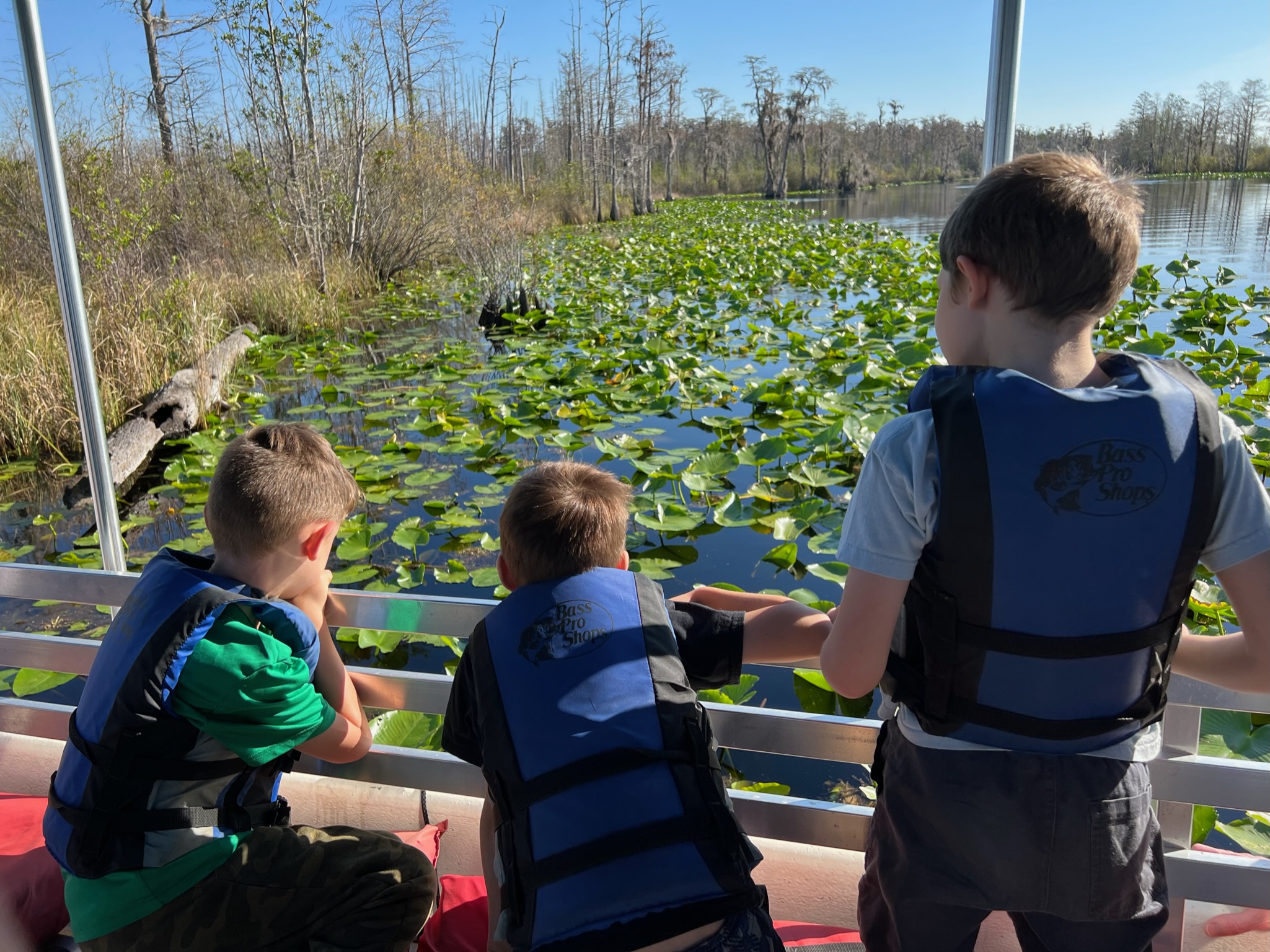
Wildlife and Wild Places
From the salt marshes on the coast to the blackwaters of the Okefenokee Swamp to the amazing biodiversity of our north Georgia rivers, our state is home to an array of priceless green spaces, waterways and wildlife.
In addition to these precious natural resources, clean water, clean air, and clean energy are critical to a sustainable economy and thriving communities in Georgia.
Environment Georgia supports policies that:
- Protect communities from the toxins in coal ash by ensuring that all coal ash is stored away from waterways in dry, lined, and capped facilities.
- Protect the Okefenokee National Wildlife Refuge from a proposed titanium mine close to the southeastern corner of the swamp.
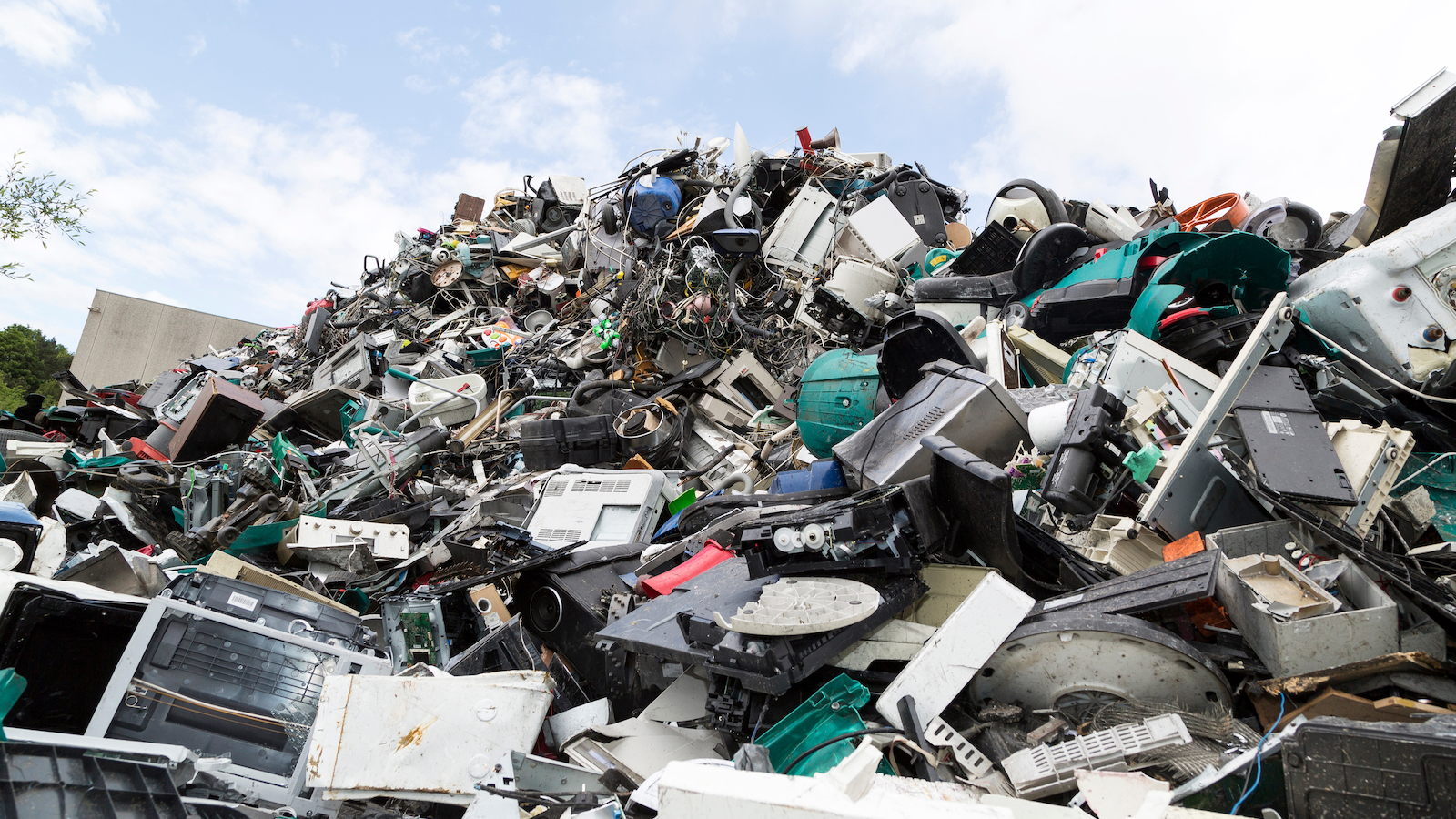
Don’t trash Georgia
The throwaway economy causes us to generate too much waste, in the form of single-use plastics and packaging as well as short-lived consumer objects. Americans dispose of 416,000 cell phones per day, and only 15 to 20 percent of electronic waste is recycled.
Environment Georgia supports policies that:
- Creates a single-use plastic trust fund that helps to clean up single-use plastic bags, polystyrene cups, plastic bottles and wrappers that make their way into our rivers and greenspaces.
- Expand successful efforts to ban single-use plastics at the local government level. The City of Atlanta, Fulton Co., Savannah and more have all taken action to phase out single-use plastics in their own facilities.
- Make it easier to fix our broken electronics and reverse the trend that leads to Georgians throwing away 12,000 cell phones a day by passing a “Georgia Right to Repair Act.” Consumers and small businesses should have access to the parts, tools and service information they need to repair products so we can keep things in use and reduce waste.
- Prohibit the construction of chemical “recycling” facilities, such as the recently canceled Brightmark facility in Macon, GA, because burning plastics creates toxic air pollution and drives climate change.
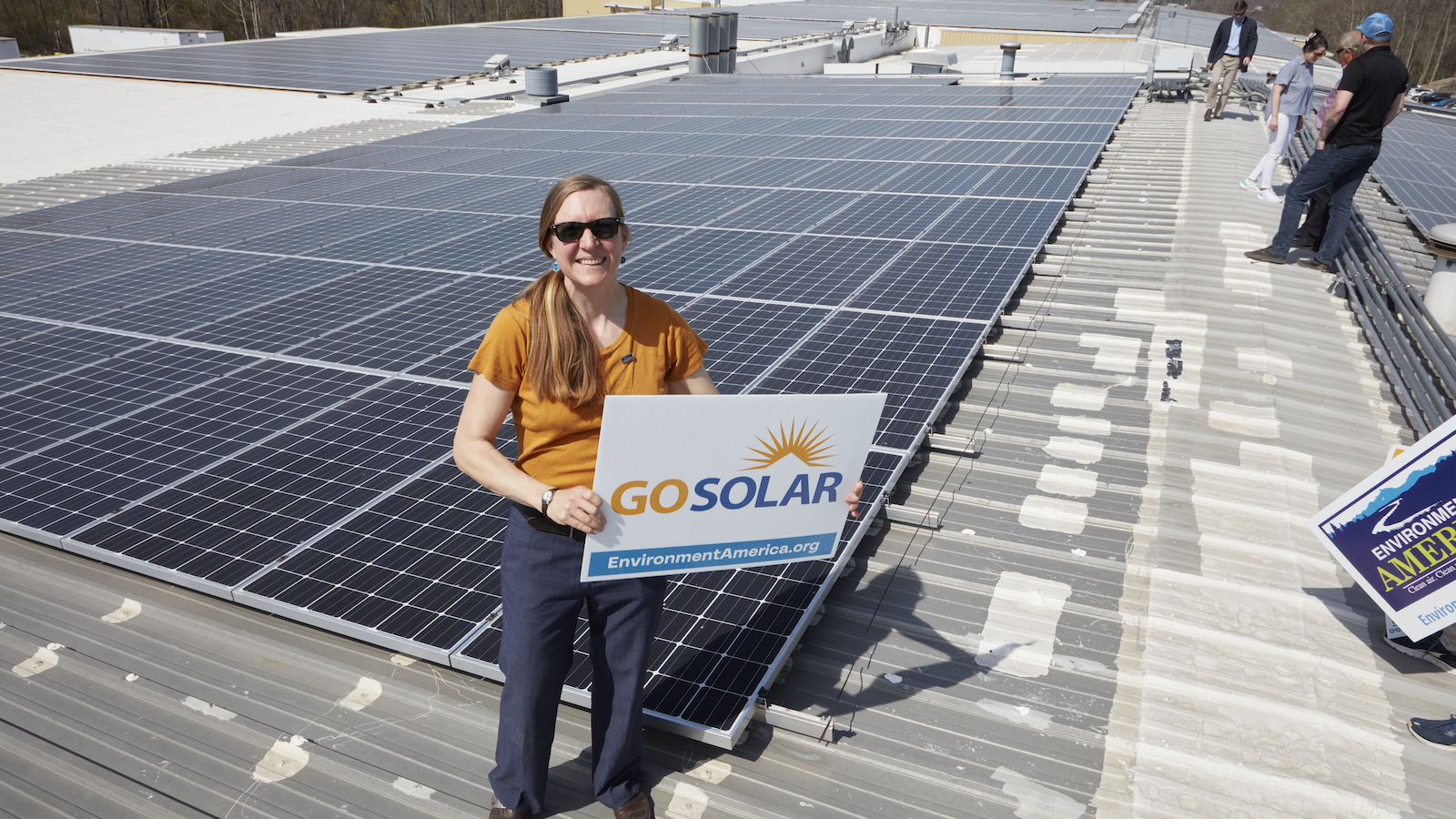
Building a Clean Energy Future
In just a few years Georgia has installed several power plants’ worth of solar power in the state, but the potential for energy efficiency, solar and wind energy is still much greater. Tapping these free, abundant resources while also making sure Georgians use energy more efficiently could mean pollution-free power production and local jobs. Environment Georgia supports:
- Moving cities and counties towards 100% clean and renewable energy. DeKalb County, Atlanta, Athens-Clarke County, Savannah, Clarkston, Augusta, and Decatur have all set a goal of 100% clean energy.
- The Georgia Homegrown Solar Act (SB 210 by Sen. Jason Anavitarte) which would ensure solar generators are being fairly compensated and are not being penalized with unfair fees. It would also establish true community solar for non-profits which helps make solar more accessible to all Georgians.
- Adding Georgia to an Atlantic offshore wind task force to coordinate and streamline offshore wind production. Currently Georgia is the only state on the East Coast not participating.
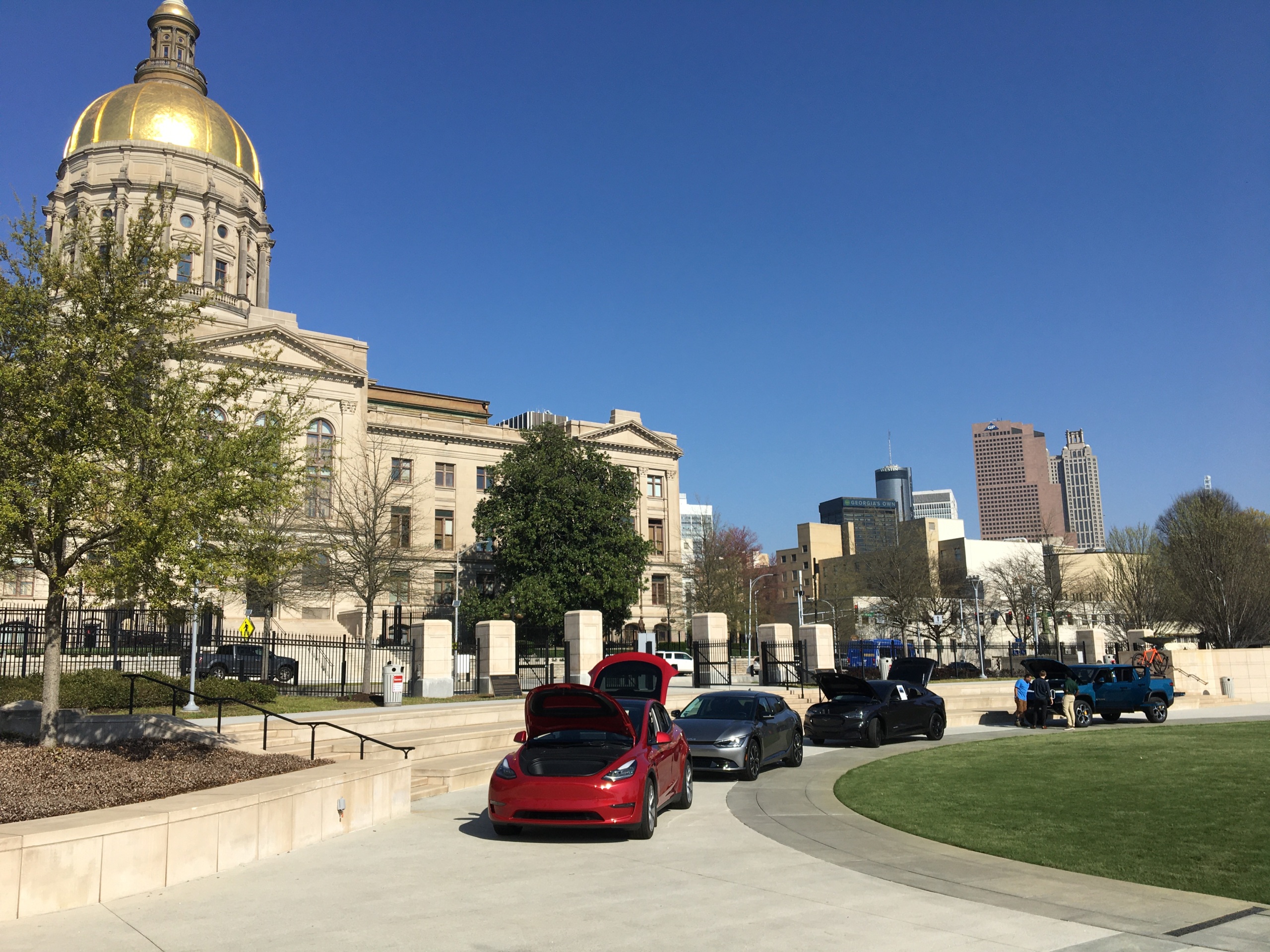
Clean transportation
Air pollution and high asthma rates are just a few of the symptoms attributable to a transportation system that relies heavily on congested roads and polluting cars.
Georgians need more sustainable options, like expanded and improved rail and bus systems and cleaner cars, to get them around. Environment Georgia supports:
- Encouraging ownership of EVs by decreasing Georgia’s high EV registration tax and limiting an additional EV tax, which bills drivers for every kw/h they charge at public chargers, to only be applicable at high speed, ‘level 3’, chargers.
- Increased state support for transit.
- Adoption of a ‘Total Cost of Ownership’ calculator for all state fleet vehicle purchases that will ensure Georgia purchases EVs when it will save taxpayers money in the long run.
Topics
Authors
Jennette Gayer
State Director, Environment Georgia
As director, Jennette coordinates policy development, research, outreach and legislative advocacy for Environment Georgia. She has run successful campaigns to designate Georgia’s first outstanding national resource water along the headwaters of the Conasauga River, expand parks along the Chattahoochee River and Jekyll Island State Park, and stop construction of three new coal-fired power plants in Georgia, while also advocating for solar policies that have helped make Georgia one of the top 10 states for solar in the country. She serves on the leadership team for the Georgia Water Coalition, and on the boards of Citizens for Progressive Transit and The Georgia Solar Energy Association. Jennette lives in Atlanta, where she enjoys training for triathlons and hiking and camping in Georgia’s mountains.
Find Out More

Green schools guide

Nifty Fifty Activities
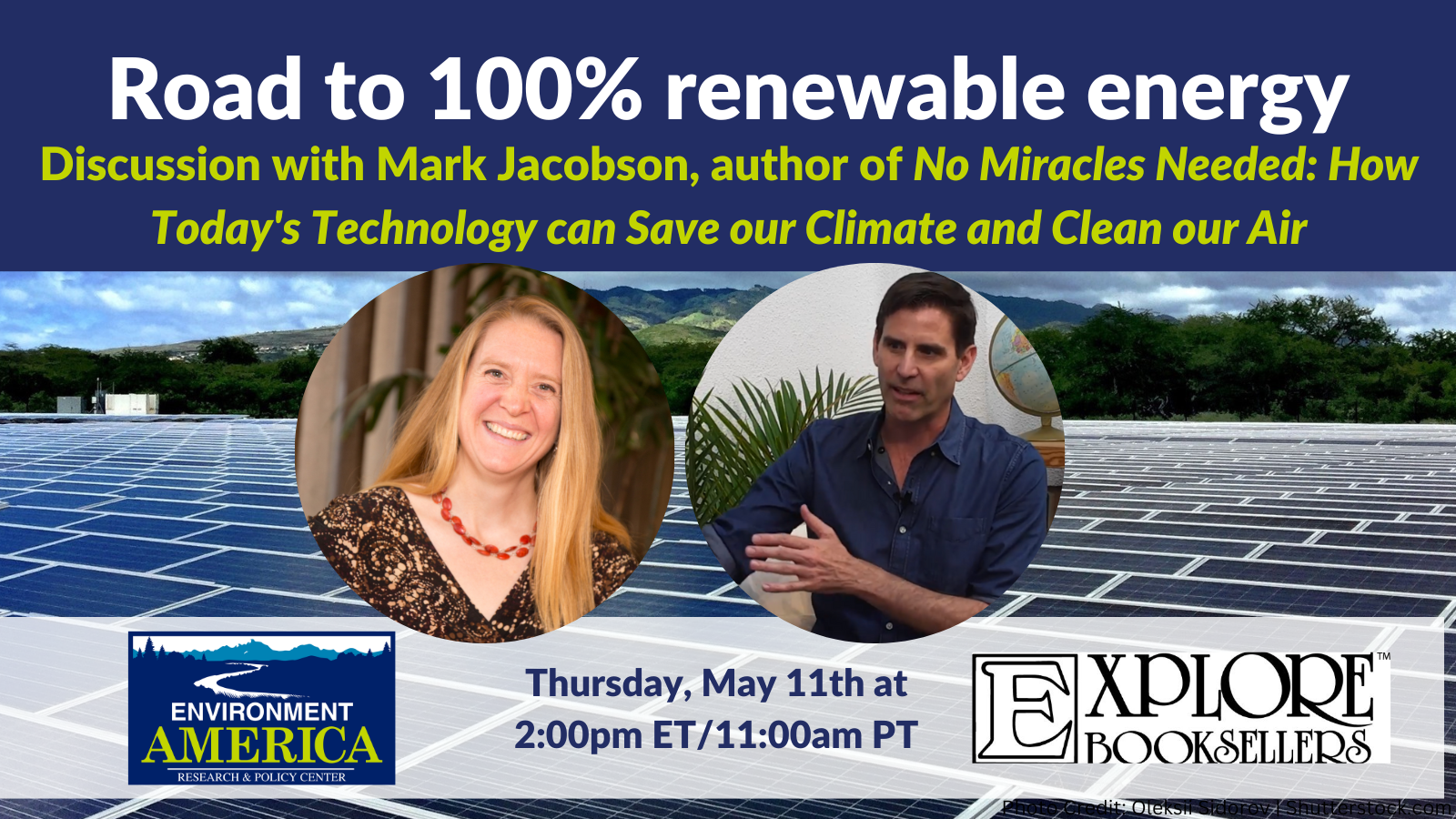
Recording of Road to 100% Renewable Energy with Dr. Mark Jacobson


